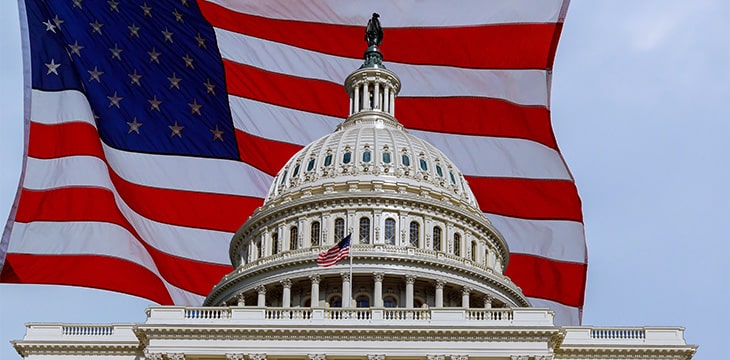|
Getting your Trinity Audio player ready...
|
A bipartisan group in the U.S. Congress has proposed a bill to simplify the tax affairs of digital asset holders. Called the “Virtual Currency Tax Fairness Act,” it aims to make smaller profits on personal transactions exempt from capital gains tax.
It’s the second attempt to introduce such a bill. Representatives Suzan DelBene (D-Wash.) and David Schweikert (R-Ariz.) previously tried to present the bill to the House of Representatives in January 2020; however, there was never a vote.
The new U.S. bill is co-sponsored by Representatives Tom Emmer (R-Minn.) and Darren Soto (D-Fla.) The bill’s sponsors have all spoken in favor of digital assets in the past. It seeks to change the 1986 Internal Revenue Code with a new section 139J, “Gain From Disposition of Virtual Currency.”
There are no guarantees the bill will pass into law or even face a vote in the House, leaving several observers skeptical.
The change is also small. Only profits on price gains of over $200 would be taxed, meaning users would still need to calculate values at initial acquisition compared to the time it was sold or spent.
Currently, any purchase of a digital asset counts as a “tax event.” This means its value should be recorded at the time of purchase and calculated against its value at the time of “selling”—which includes being used in a purchase.
Today, most digital assets are traded for price speculation, bought, and sold in substantial amounts on online exchanges. This means their value comparisons are as simple to calculate as any stock or foreign currency exchange. However, the stated purpose of these assets is for use as money (specifically, cash), meaning they would ideally be spent in much smaller amounts over a longer period of time once acquired. This creates a complicated tax nightmare for real-world users who might, for example, buy a few thousand dollars worth of Bitcoin and use it to pay for restaurant meals and other small purchases.
Prices are notoriously volatile in the digital asset world, and prices against the USD can rise or fall as much as 50% in just a few months. In the BSV economy, where Bitcoin is used for micropayments of a few cents or less hundreds of times a day, this creates an even bigger headache. Many users choose to ignore the regulations completely, creating a massive risk should they be audited.
HODL that digital gold, it will make you richer (in dollars)
Such rules only encourage the “HODL” mentality that has wrecked the utility of assets like BTC as digital cash or spending money. Governments, not wanting to see competition for national currencies they control, have so far not attempted to make the lives of digital asset users any simpler.
Excessive fees on many popular blockchain networks also discourage small-purchase use. In BTC’s case, this is partly intentional, and the “digital gold” meme promotes a mentality that speculators should buy the asset and hold it static in their wallets, hoping its price will increase over a longer period of time. Users who spend their BTC on purchases are routinely mocked online when the price rises exponentially, with comments like “think of how much money you’d have now if you hadn’t spent that.”
Technological add-ons like the Lightning Network aim to make small-purchase spending possible again on BTC, but the tax issue also weighs heavily on users’ decisions. If you bought some BTC in 2013 and then used $5 of it to buy the proverbial coffee in 2021, you would owe capital gains tax on whatever value BTC had gained over the years.
The new bill’s sponsors said current tax regulations surrounding digital assets are “antiquated” and do not consider assets that can be spent as easily as cash. Those in higher positions may agree with this opinion, but it is another matter entirely whether they would support legislation that would only increase competition with fiat currencies.
Watch: CoinGeek New York panel, Government & Public Sector Applications on Blockchain
https://www.youtube.com/watch?v=wGw6rBv7nlc&t=12716s

 02-22-2026
02-22-2026 




